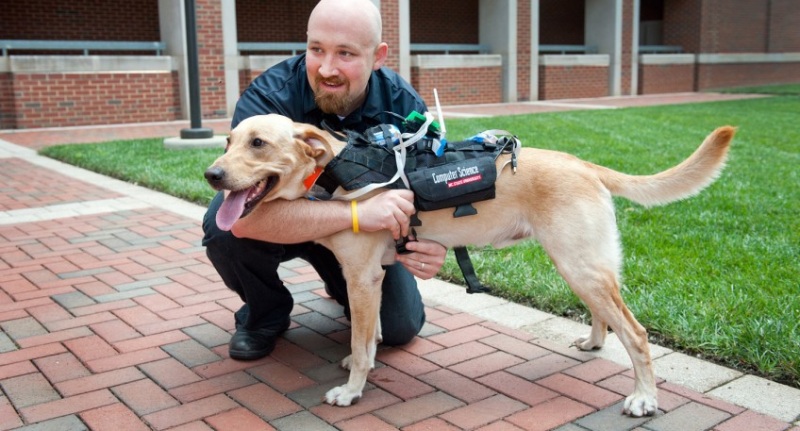A new device, trialed by North Carolina State University, hopes to enhance communication between us and our furry friends, which could find uses in a multitude of situations.
The fanny pack loaded with a computer the size of a “deck of cards” sits on the dog’s back and harnessed for added stability (should you throw that stick a little too far). It might sound ridiculous, but the backpack will allow humans and dogs to communicate more effectively, which could benefit ordinary potty training to search and rescue missions. Perhaps the most obvious application would be for us with guide dogs.
No ad to show here.
“Dogs communicate primarily through body language, and one of our challenges was to develop sensors that tell us about their behavior by observing their posture remotely,” explains Dr. David Roberts — co-lead on the work’s documentation.
The pack monitors the dogs posture and software, in turn, explains to the human exactly what the dog is “saying”. We presume “woof” is a common staple of the canine dialect. Nevertheless, when the human wishes to return a comment, the dog experiences vibrations from the haptic motors and an audio cue thanks to the speakers.
It also monitors vitals, such as emotional state (of the dog), body temperature, and heart rate — all vital to catch early symptoms of canine ailments.
Although we doubt the technology will result in an Umbrella Corp-like catastrophe, the paper entitled, “Towards Cyber-Enhanced Working Dogs for Search and Rescue,” does sound incredibly scary. Nevertheless, the potential for this technology to monitor other animals’ well-being should also be seen as a massive driver.
The device is currently in its prototype stage, but Roberts notes that the team plans to refine the design. Who knows, maybe we’ll have talking dogs walking around some day.
